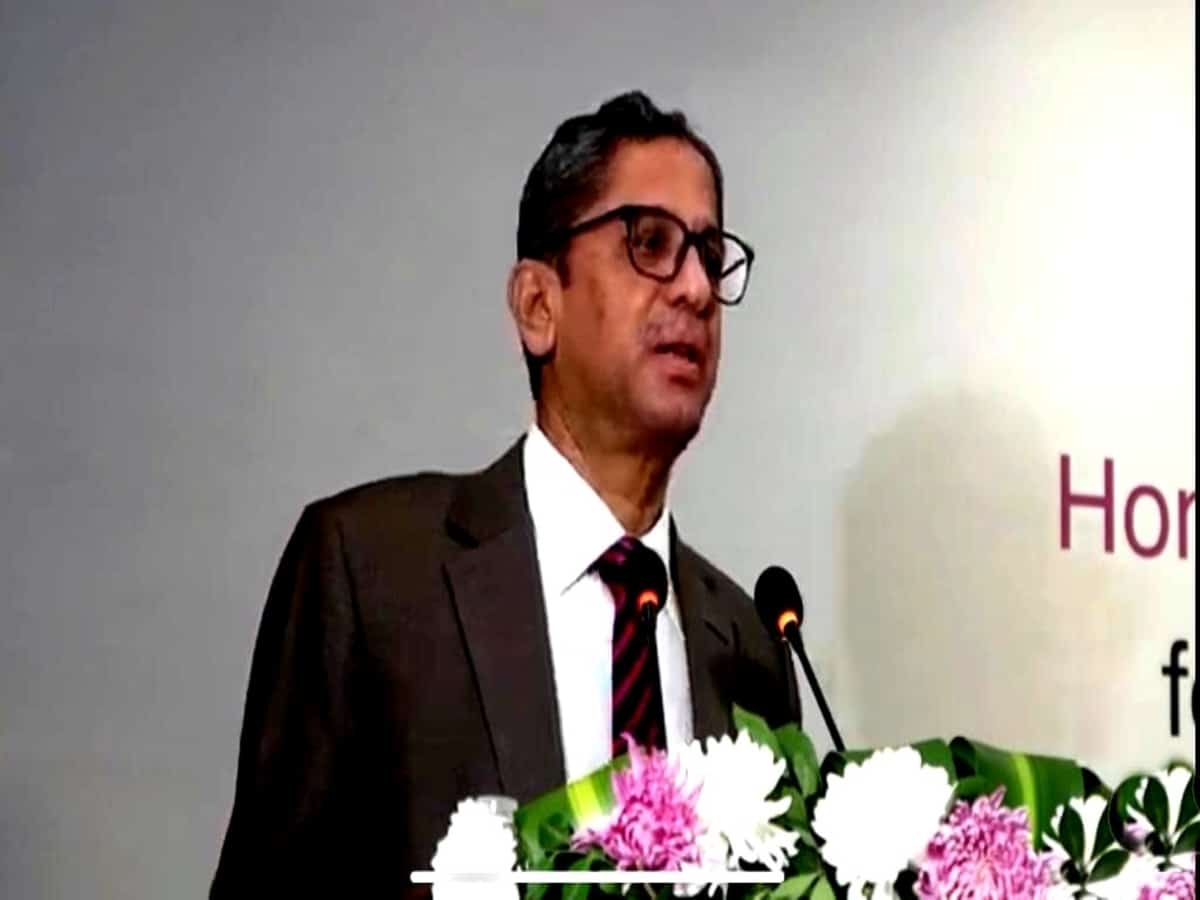
Ranchi: False narratives about the supposed easy lives of judges and misconception of their ultimate comfort is hard to digest, Chief Justice of India (CJI) NV Ramana said on Saturday.
Delivering the inaugural Justice SB Sinha Memorial Lecture on ‘Life of a Judge’, CJI Ramana said judges spend sleepless nights rethinking their decisions.
“There exists a misconception in the minds of the people that judges stay in ultimate comfort, work only from 10 am to 4 pm and enjoy their holidays. Such a narrative is untrue… when false narratives are created about the supposed easy life led by judges, it is difficult to swallow,” he said.
The responsibility of judging is extremely burdensome owing to the human implication of the rulings, he added.
“The burden of sentencing an accused, deciding the custody of a child, deciding the right of a tenant or a landlord, calculating the value of a human life in an insurance case — they all take a toll on our mental wellbeing. We spend sleepless nights rethinking our decisions. …the stress is much more at the highest level,” CJI Ramana said.
It is not easy to prepare for over a hundred cases every week, listen to novel arguments, do independent research, and author judgments, while also dealing with the various administrative duties, he asserted.
Judges spend hours reading the books and making notes for matters listed the next day. Preparation for the next day begins soon after the court rises, and goes on beyond midnight on most days, he said.
“We continue to work even during weekends and court holidays to do research and author pending judgments. In this process, we miss out on many joys of our lives. Sometimes, we miss out on important family events. At times, I wonder if my grandchildren would recognise me at all after failing to see them for days together,” the CJI said.
A judge in a modern democracy cannot be defined as one who merely states the law, he said, maintaining that a judge bridges the gap between social reality and law, besides protecting the spirit and the values of Constitution.
“It is courts and judges who balance formal democracy with substantive democracy…With legal jurisprudence growing leaps and bounds, the role of a judge has undergone sea-change in all respects,” he said.
On changes in the process to appoint judges to constitutional courts, he said it increased inclusivity with persons from deprived backgrounds finding a place on the bench and cited his example as to how born in a family of farmers he ended up with a degree of law, encouraged by his father.
“There is a view that a judge should have continued connection with society. But sections of society have certain perceptions about judges moving around in social circles. The choice is difficult. But, I personally believe that one must remain connected with the society and be aware of social realities and the problems of the people,” he said.
Now, most of the judges of constitutional courts begin their judicial career from their successful legal careers, he said, noting that the most obvious sacrifice is monetary and one must be moved by a spirit of public service to take such a decision.
The CJI inaugurated two new sub-divisional court complexes at Chandil and Nagar Untari virtually.
He also handed over cheques of Rs 95.50 lakh to beneficiaries of ‘CCL Covid Crisis Scholarship Scheme’, a CSR initiative of Central Coalfields Limited(CCL).

